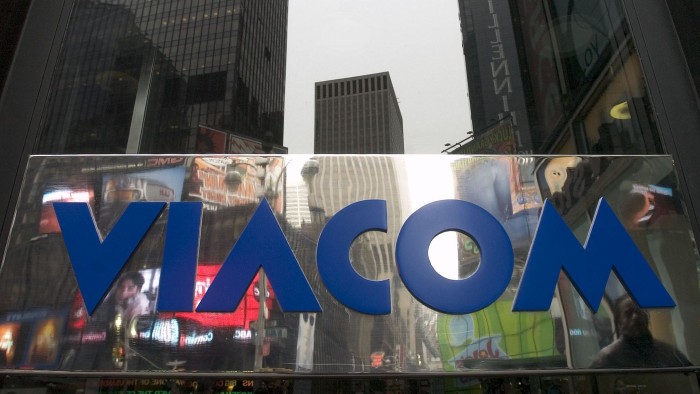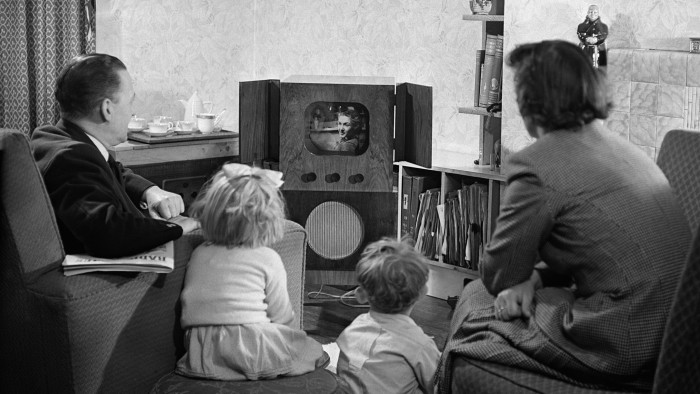TV networks face shaky future in changing media landscape

Sharply falling stock markets have brought company valuations under renewed scrutiny but, for media groups, the China-induced panic is merely a sequel to an already painful re-evaluation by investors.
Media shares first went into freefall at the beginning of August, when companies on both sides of the Atlantic suffered steep declines. Viacom, Discovery Communications, ITV and Time Warner were among those hit: in one day of trading, $37bn was wiped from the market value of the biggest media businesses.
Television continues to be a highly profitable, cash-generative industry, but viewing habits are changing. New, digital services such as Netflix, Amazon and Hulu are luring talent — and viewers — from traditional broadcast and cable TV networks. Now, the hottest new programmes are as likely to be shown first on digital streaming services as they are on TV.
Price is another problem. In the US, the high cost of cable and satellite packages — and a perception that the bundles of channels on offer do not represent value for money — has led to cancellations, known as “cord-cutting”. Meanwhile, there are plenty of other forms of entertainment, such as social media, to suck up time that was once spent watching TV.
But these trends are not new. So what triggered the sell-off in media shares?
It began when Walt Disney, the world’s largest media company, revealed that growth had slowed at its hitherto unstoppable ESPN sports cable network. ESPN holds the largest collection of live sports rights with long deals in place to broadcast the most sought-after competitions. In the TV industry, the prevailing argument has always been that live sport is immune to changes in viewing patterns. After all, nothing keeps a US household away from their favourite match on TV. With all the drama and tension inherent in a big NFL or NBA game, it has to be watched live rather than later via a digital recorder. This means ESPN has been able to command hefty premiums from advertisers and the highest fees from cable and satellite companies that carry its channels.
But sport is an expensive business. Competitors such as NBC Sports and Fox Sports are vying for the same rights as ESPN. This has driven up the prices the network pays for rights — a cost that is passed on to the cable and satellite companies that pay to carry ESPN and, ultimately, to the consumers that subscribe to pay-TV.
Lex: Dish Networks/Sinclair

Local broadcasters’ gravy train may be about to slow down
Continue reading
Disney’s revision of its growth projections for ESPN sent alarm bells ringing across the media landscape. “It showed that everyone was exposed,” says Rich Greenfield, an analyst with BTIG Research.
It also coincided with dreadful audience ratings figures for some of the most popular cable channels in the US.
In the past 12 months, leading networks such as MTV and Time Warner’s TNT Network have suffered ratings declines of about 20 per cent on the previous year, according to Nielsen. Some companies, notably Viacom — which owns MTV, Nickelodeon and Comedy Central — have been grappling with falling ratings for more than a year.
But it is clear that lower ratings are the new normal across the media landscape — a realisation that is, belatedly, being reflected in the valuations of the companies that produce and distribute TV programming.
Analysis
TV flickers as viewers find new screens

Record numbers of Americans are unplugging their subscriptions.
Read more
Among media executives, the hot new book this year is Michael Wolff’s Television is the New Television. He argues that TV is holding its own in the face of competition from digital players. Despite the demise of TV being long predicted, he says it continues to thrive.
He makes a good point. Cutting-edge companies such as Vice Media have already jumped into TV production, quietly realising that there are more advertising dollars to be earned there than on the internet. BuzzFeed and Vox Media plan to follow suit, with both companies having secured investment from Comcast, owner of the NBC broadcast network.
Investors are nervous, judging by the performance of media stocks. Discovery shares are down close to 40 per cent over the past year, Viacom’s have fallen 50 per cent in the same period, while CBS is down more than 25 per cent.
Mr Wolff’s thesis may be right. But someone forgot to tell Wall Street.
Comments